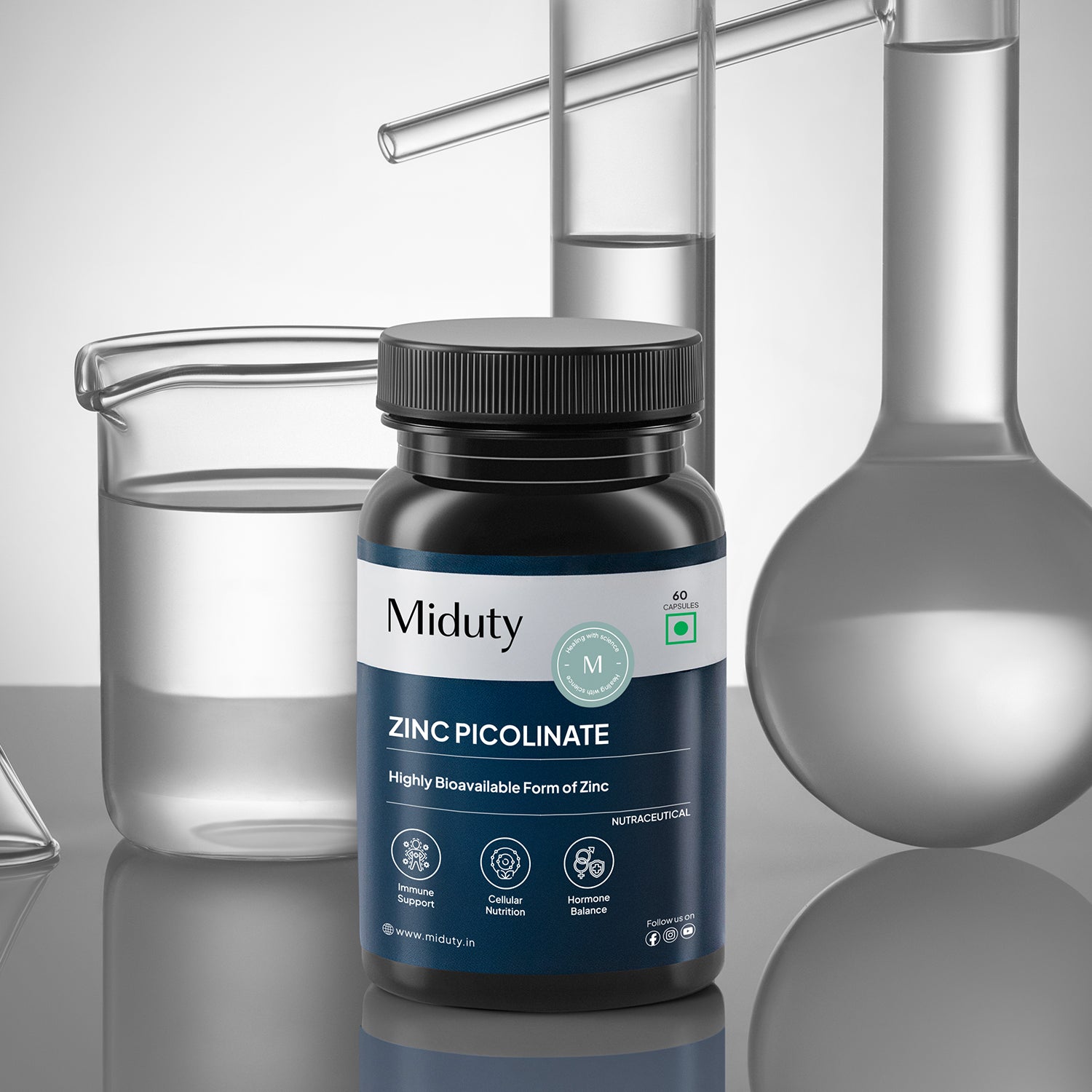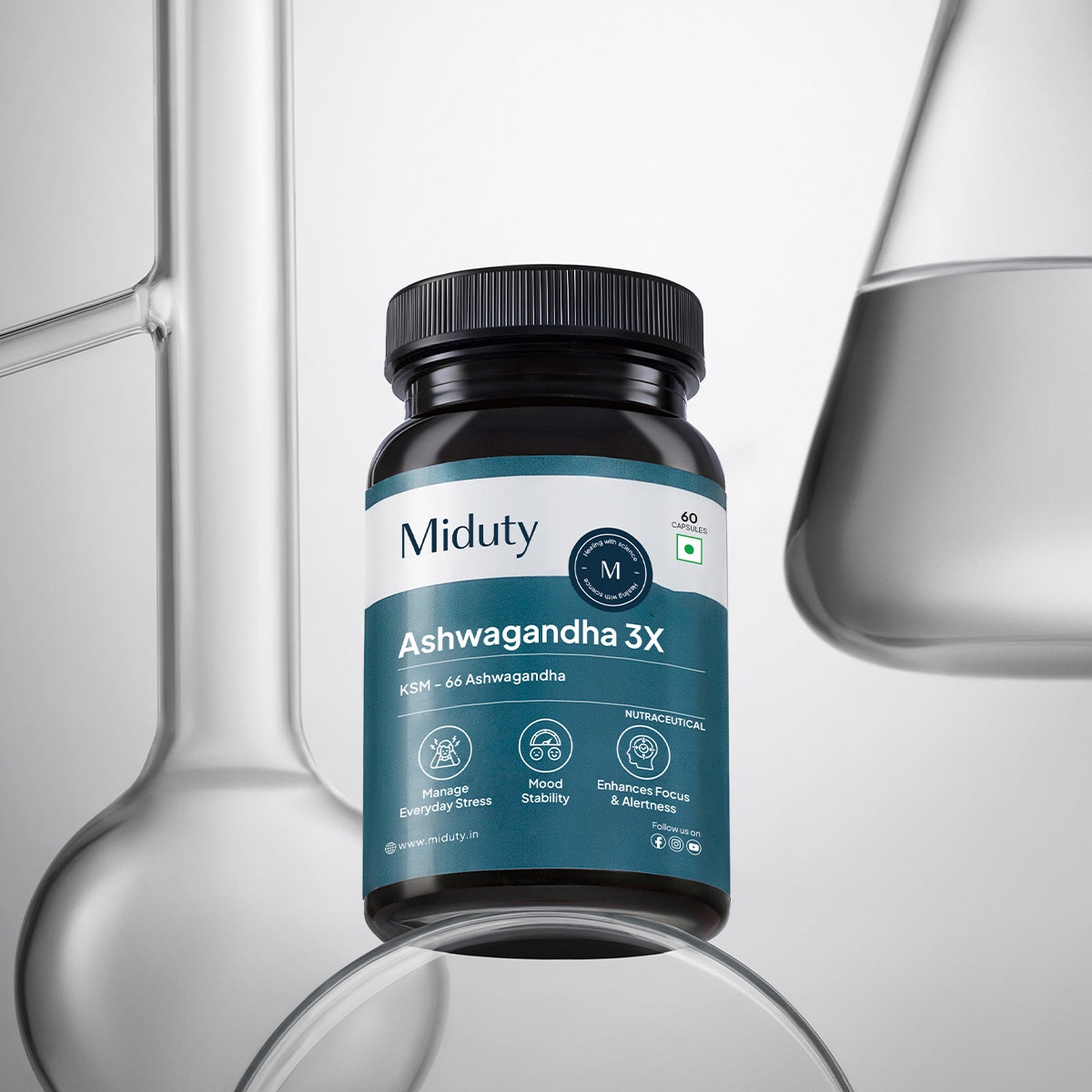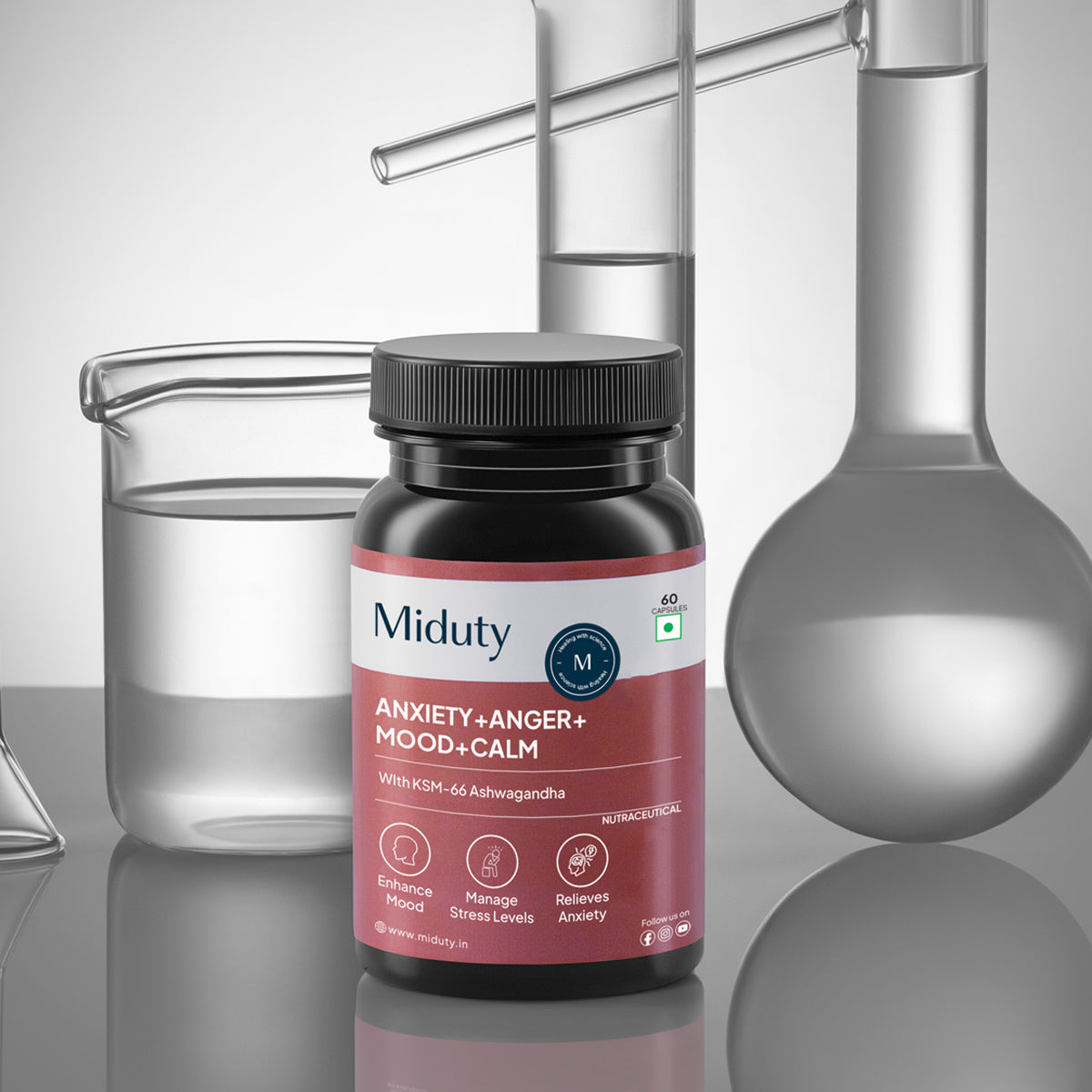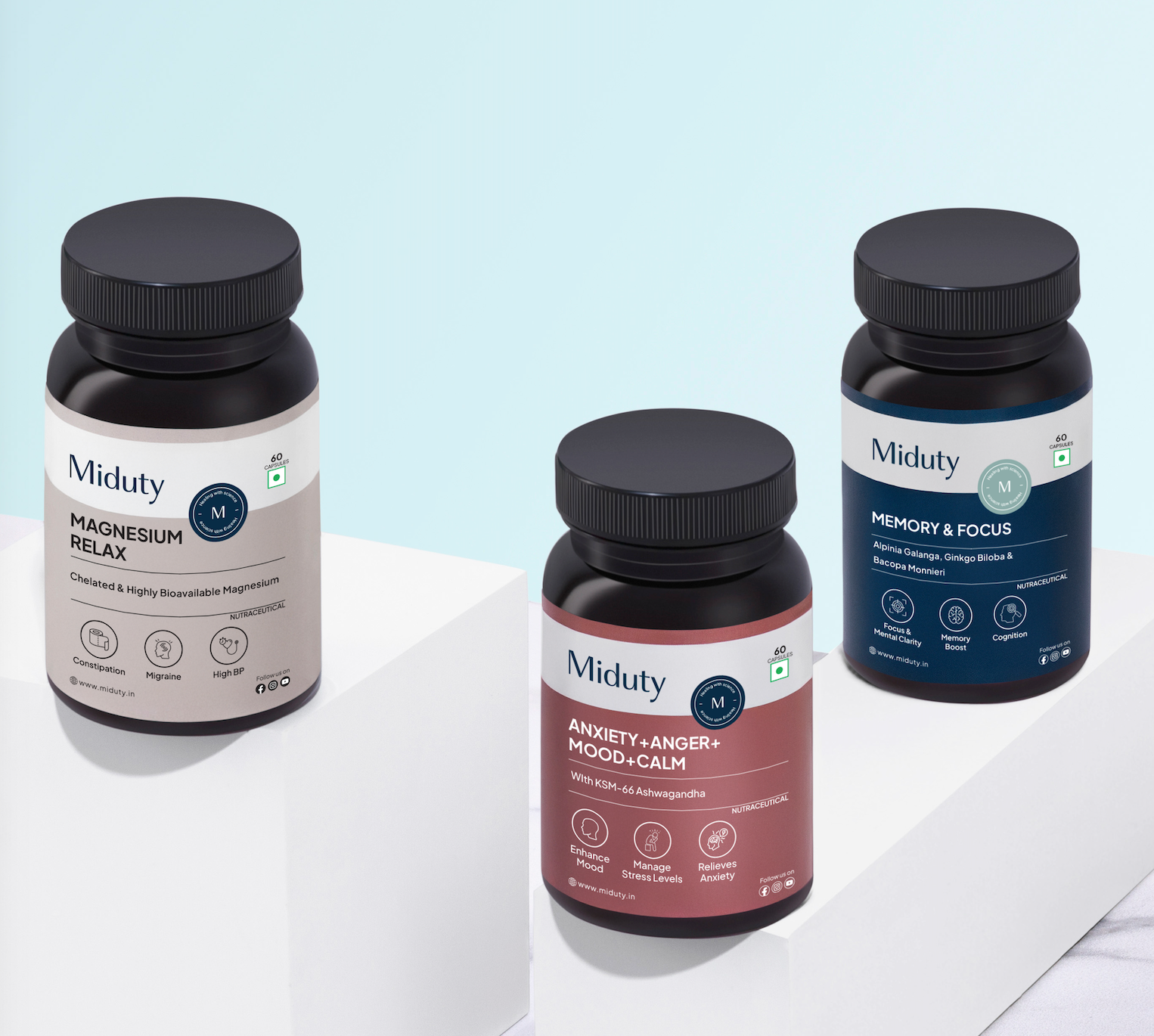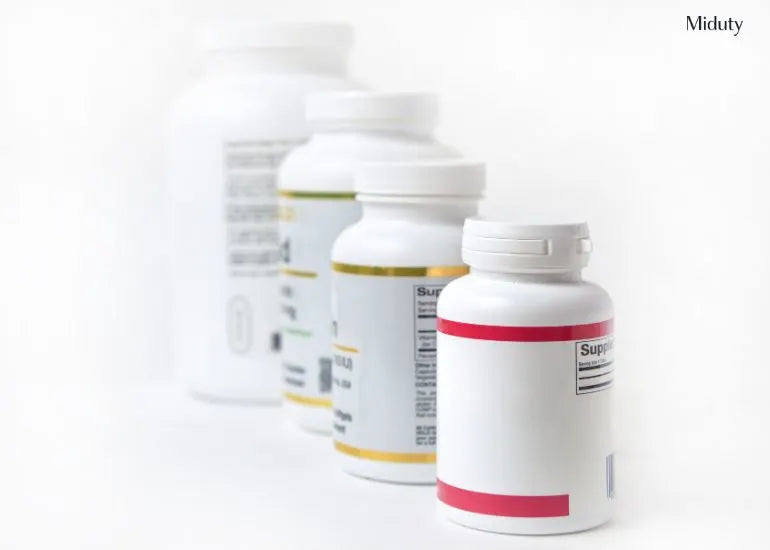
Zinc Picolinate vs Zinc Gluconate: Which is Better?
If you've ever walked through the supplement aisle or browsed online health stores, you've probably seen a long list of zinc supplements. Zinc citrate, zinc sulfate, zinc glycinate — and, of course, the two most popular ones: zinc picolinate and zinc gluconate.
They both sound beneficial, but which one actually works better? More importantly, which one helps your body get the most out of zinc? Let's explore the science, the differences, and find out why zinc picolinate might be the better choice.
Key Takeaways
1. Zinc is essential for overall health — it supports immune function, skin repair, hormone balance, mood regulation, and energy metabolism. Because the body cannot produce zinc on its own, supplementation is often necessary.
2. Zinc picolinate offers superior absorption — thanks to its bond with picolinic acid, this form helps the body absorb and utilize zinc more efficiently than most other types, including zinc gluconate.
3. Zinc gluconate is affordable but less bioavailable — while it's widely available and gentle on the stomach, it doesn't deliver the same absorption levels as zinc picolinate, making it better suited for general wellness rather than correcting deficiencies.
4. Zinc picolinate is especially beneficial for those with absorption challenges , individuals with digestive issues, plant-based diets, or chronic stress tend to benefit more from this form due to its enhanced uptake.
5. For long-term effectiveness, zinc picolinate is the smarter choice, though slightly more expensive, it provides better results for immunity, skin health, hormonal support, and overall vitality, making it the preferred supplement for those seeking optimal health benefits.
Why Zinc Matters?
Zinc is a trace mineral — your body only needs small amounts, but it plays a huge role in your health. It's involved in over 300 enzymatic reactions that influence:
- Immune function: Zinc helps regulate immune cells and supports your body's defense system.
- Skin health: It aids in wound healing and supports collagen production.
- Hormonal balance: Zinc affects testosterone, estrogen, and thyroid function.
- Brain and mood: It plays a role in neurotransmitter activity and helps regulate stress.
- Energy and metabolism: Zinc helps your body convert nutrients into usable energy.
Your body cannot produce zinc on its own, so it must come from food or supplements. That's where choosing the right form of zinc becomes important.
What Is Zinc Picolinate?
Zinc picolinate is a form of zinc that's bound to picolinic acid, a compound your body naturally produces from the amino acid tryptophan. This bonding is key because picolinic acid acts as a chelator, it helps your body absorb and transport minerals more efficiently.
This makes zinc picolinate one of the most bioavailable forms of zinc, meaning your body can absorb and use it more effectively compared to many other types. It's often recommended for people who have:
- Digestive issues or low stomach acid
- Plant-based diets (where zinc absorption can be lower)
- Chronic stress or poor nutrient absorption
Because of its enhanced absorption, zinc picolinate is frequently chosen by nutritionists, athletes, and those looking to correct zinc deficiencies quickly and efficiently.
What Is Zinc Gluconate?
Zinc gluconate is another popular form of zinc, created by combining zinc with gluconic acid — a compound derived from glucose. It's one of the most common and affordable zinc supplements on the market and is widely used in cold lozenges, multivitamins, and immune support formulas.
Zinc gluconate is known for being gentle on the stomach and easy to find, which makes it a convenient choice for many. However, it has a lower absorption rate compared to zinc picolinate.
It's a solid choice for general immune support and maintenance, but those seeking maximum effectiveness — especially for skin, hormonal balance, or chronic deficiency — may not experience the same level of benefit as they would with zinc picolinate.
Zinc Picolinate vs Zinc Gluconate
Here's a direct comparison of both forms:
|
Feature |
Zinc Picolinate |
Zinc Gluconate |
|
Composition |
Zinc bound to picolinic acid (a natural chelator that enhances absorption). |
Zinc bound to gluconic acid (a mild, sugar-based compound). |
|
Absorption |
High — picolinic acid improves bioavailability and helps zinc enter cells efficiently. |
Moderate — absorbed adequately but less effectively than picolinate. |
|
Effectiveness |
Superior for people with low stomach acid, digestive issues, or zinc deficiency. |
Effective for general use and immune support, but may not raise zinc levels as much. |
|
Digestive Tolerance |
Gentle on the stomach for most users; less likely to cause nausea. |
Can occasionally cause mild nausea when taken without food. |
|
Best For |
Individuals with absorption issues, those seeking optimal zinc uptake, or on plant-based diets. |
Those wanting an affordable, accessible zinc source for general wellness. |
|
Scientific Backing |
Studies show significantly higher zinc absorption compared to other forms. |
Widely used and studied for cold relief but less efficient absorption. |
|
Availability |
Common in high-quality standalone supplements and online stores. |
Found in most pharmacies and multivitamins; very accessible. |
|
Price |
Slightly more expensive due to enhanced absorption. |
Budget-friendly and widely available. |
Verdict: Both forms provide zinc, but zinc picolinate offers superior absorption and effectiveness, making it the preferred option for those who want the most from their supplement.
The Science of Absorption
You can take a 50 mg zinc supplement, but that doesn't mean your body will use all 50 mg. What matters is how much zinc actually gets absorbed into your cells.
A study published in Agents and Actions (1987) compared zinc picolinate, zinc citrate, and zinc gluconate. After four weeks, participants who took zinc picolinate showed significantly higher increases in zinc levels in their hair, blood, and urine compared to the other two forms.
The reason lies in picolinic acid. This compound acts as a natural mineral carrier that helps zinc cross the intestinal wall more effectively. Essentially, it improves zinc's "delivery system."
Zinc gluconate, while still useful, does not have this same level of efficiency. It's absorbed, but not as completely or consistently as zinc picolinate.
When Zinc Picolinate Makes a Difference?
Zinc picolinate tends to perform best in people who have issues with mineral absorption. If you have any of the following, you may benefit more from this form:
- Digestive challenges such as IBS, Crohn's disease, or low stomach acid.
- Plant-based diet, since phytates in grains and legumes can block zinc absorption.
- Chronic stress, which can deplete zinc levels faster.
- Medication use, especially antacids or proton pump inhibitors (PPIs).
In these situations, the superior absorption of zinc picolinate ensures that your body still gets the zinc it needs to function properly. This is why many healthcare professionals and functional medicine practitioners prefer zinc picolinate for their patients.
Dosage, Safety, and Side Effects
No matter which form you choose, proper dosage is essential. The recommended daily intake of zinc is:
- Men: 11 mg per day
- Women: 8 mg per day
For therapeutic use (such as during illness or deficiency), doses between 15–30 mg per day are common. Always follow your doctor's recommendation.
Taking too much zinc (over 40 mg daily for long periods) can interfere with copper absorption and lead to imbalances or anemia. Many high-quality zinc picolinate supplements include a small amount of copper to maintain balance.
Both forms are generally safe when taken with food, but zinc picolinate is often better tolerated by those who experience nausea from zinc gluconate.
Which Zinc Supplement Should You Choose?
Both zinc picolinate and zinc gluconate provide essential zinc, but they differ in how efficiently your body can use it. Zinc gluconate is affordable and well-tolerated, making it a good entry-level option. However, zinc picolinate stands out for its superior absorption and effectiveness, especially for people with digestive issues or poor mineral uptake.
If you're investing in a supplement, you want to be sure your body actually absorbs what you take. Zinc picolinate offers a more efficient, reliable way to support your immune system, skin, hormones, and overall vitality.
Conclusion
Zinc gluconate can be seen as a dependable, cost-effective choice that effectively supports general zinc needs. It provides solid benefits for those simply aiming to maintain adequate zinc levels. However, zinc picolinate stands out as the premium, high-performance form — offering superior absorption and more noticeable effects on overall health and wellness. For individuals seeking to optimize their supplement routine and achieve the most efficient results, zinc picolinate is the more effective and worthwhile option.
FAQ's on Zinc Picolinate vs Zinc Gluconate -
Q1 - Is zinc picolinate better than gluconate?
Zinc picolinate is generally considered superior to zinc gluconate because it is absorbed more efficiently by the body. Research indicates that zinc picolinate significantly raises zinc levels in the blood, hair, and urine, whereas zinc gluconate does not produce the same level of improvement. This makes zinc picolinate a more effective choice for addressing zinc deficiency or enhancing overall zinc status, while zinc gluconate remains a widely used and accessible option.
Q2 - What is the best form of zinc to take?
The best form of zinc to take is zinc picolinate, as it offers superior absorption and effectiveness compared to other forms like zinc gluconate.
Q3 - Is zinc picolinate good for skin?
Zinc picolinate is beneficial for skin health as it supports collagen production, promotes wound healing, and reduces inflammation. It may also help with acne by regulating oil production, combating bacteria, and offering antioxidant protection against UV radiation and environmental damage.
Q4 - Is zinc gluconate good for the liver?
Zinc, including zinc gluconate, can benefit liver health due to its anti-inflammatory and antioxidant properties and its role in treating zinc deficiency often seen in liver disease. However, it is not a cure and should be taken under medical supervision, as excessive zinc intake can lead to negative side effects.
Q5 - What is better, zinc picolinate or gluconate?
Zinc picolinate is generally regarded as superior to zinc gluconate because it is absorbed and retained more efficiently by the body. Research shows that zinc picolinate supplementation significantly raises zinc levels in the blood, hair, and urine, whereas zinc gluconate does not produce the same results.
Q6 - Which form of zinc is most effective?
Zinc picolinate is generally regarded as superior to zinc gluconate because it is absorbed and retained more efficiently by the body. Research shows that zinc picolinate supplementation significantly raises zinc levels in the blood, hair, and urine, whereas zinc gluconate does not produce the same results.
Q7 - Is zinc picolinate good for immunity?
Zinc picolinate supports immune health by providing a well-absorbed form of zinc, an essential mineral for immune function. It aids the activity of T-cells, B-cells, and natural killer cells that fight infections, promotes antibody production, and helps regulate inflammation.
References
| Sr. No. | Reference Links |
| 1. | Comparative absorption of zinc picolinate, zinc citrate and zinc gluconate in humans |



